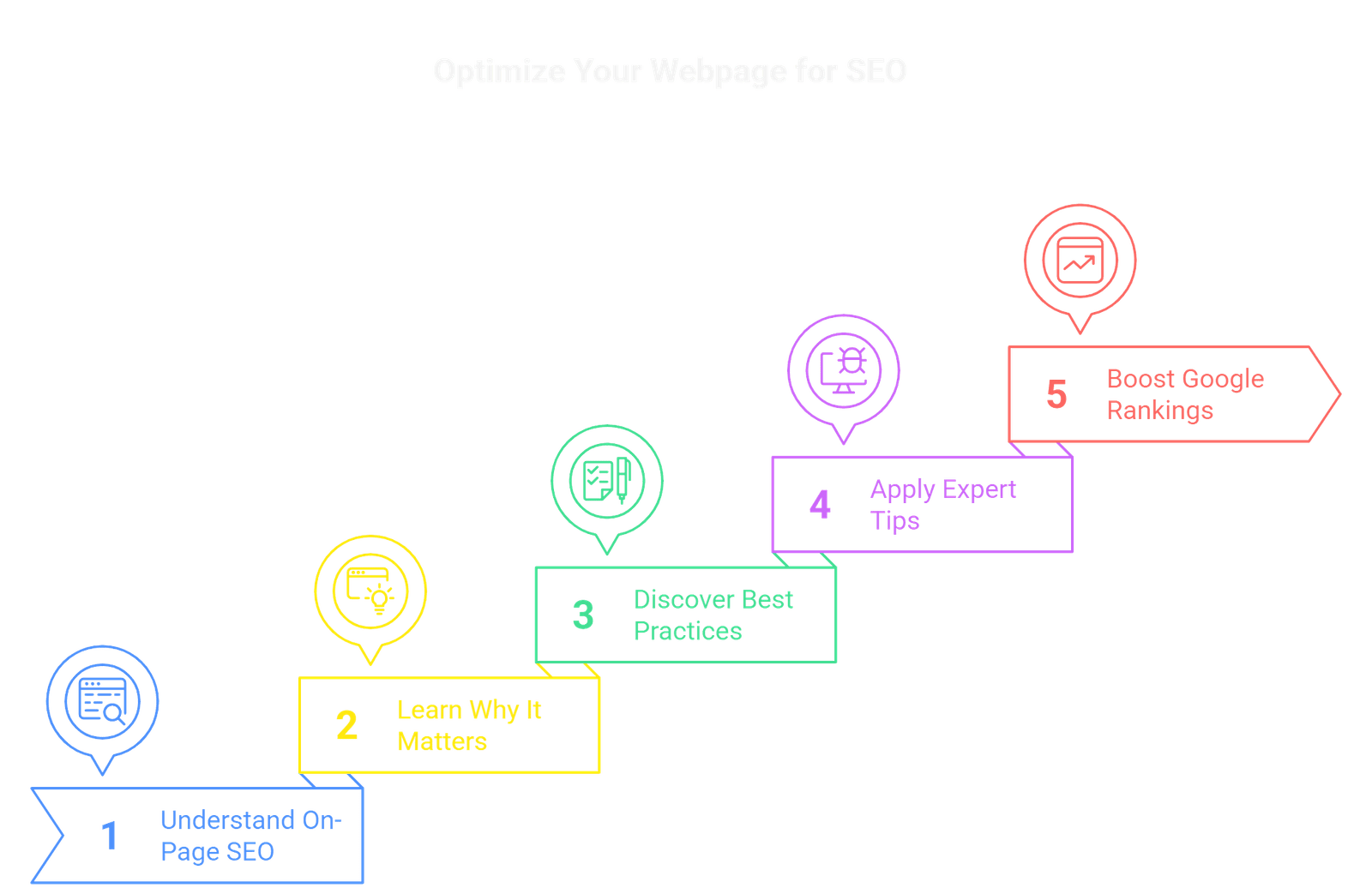Why SEO Plugins Are the Secret Weapon Every WordPress Website Needs
I still remember the first time I built a WordPress website for a client.
It was a beautiful site — polished visuals, clever copy, and a slick user-friendly design. I was so proud. But weeks went by… and there was barely any traffic. Crickets.
That’s when I learned the hard truth every web creator discovers sooner or later — a website without SEO is like a shop in the desert.
You can build the most stunning online store or blog, but if nobody can find it on Google, it’s like shouting into the void.
That’s where SEO plugins step in — like a team of invisible workers behind the scenes, tuning your site, guiding search engines, and unlocking doors to organic traffic you didn’t even know existed.
And the best part? You don’t need to be an SEO expert or code wizard to use them. WordPress SEO plugins are built to make powerful optimization tools accessible — whether you’re a newbie building your first blog or a seasoned web designer managing client sites.
But here’s the million-dollar question that every WordPress user eventually asks:
- Which WordPress SEO plugin is best?
- what are the Top SEO Plugins for WordPress Websites?
Let’s start from the beginning.
What Are SEO Plugins for WordPress — And Why Should You Care?
Imagine your WordPress website is like a car.
You’ve built the frame, installed the engine, and painted it your favorite color. But SEO plugins? They’re the GPS, the fuel efficiency system, and the tuning shop — making sure your car doesn’t just look good but actually gets to its destination (aka Page 1 on Google).
SEO plugins for WordPress are essential tools designed to:
- Guide search engines through your content (like leaving breadcrumbs in a forest).
- Help you add keywords in all the right places without breaking a sweat.
- Create XML sitemaps — think of these as neatly drawn maps for Google to follow.
- Optimize your meta descriptions, page titles, and images — all the little tweaks that boost visibility.
I often tell clients: SEO without a plugin is like trying to bake a cake without a recipe. Sure, it’s possible — but why make it harder on yourself?
So, Do WordPress SEO Plugins Work?
Absolutely — but here’s the thing.
They’re not magic wands. Think of them more like having a personal trainer for your website. They guide you, give you best practices, and help automate technical tasks — but you still need to show up and put in the work (like creating high-quality content and building backlinks).
Must-Have SEO Tools for WordPress Beginners and Pros Alike
Here’s a quick look at what an SEO plugin typically does for you:
- Auto-generate sitemaps (so search engines can navigate your site easily).
- Help with on-page SEO (like checking if your keywords are in the right spots).
- Provide content analysis (ensuring your posts are readable and SEO-friendly).
- Optimize meta tags and social media previews.
- Manage redirects and fix broken links.
In short — these are essential SEO plugins for WordPress sites because they do the heavy lifting behind the scenes while you focus on creating content and growing your audience.
Top SEO Plugins for WordPress Websites (2025 Edition)
Choosing the right SEO plugin for your WordPress site is a bit like assembling your dream team. Each plugin comes with its own personality, superpowers, and quirks.
Some are like wise old mentors — packed with experience but a little heavy-handed. Others are sleek, modern, and packed with futuristic gadgets.
Of course, even the best SEO plugin needs to work hand-in-hand with smart on-page optimization.
Want to learn how to perfectly optimize your content for search engines?
👉 Check out our complete guide: [What Is On-Page SEO? How to Optimize Your Page for Better Rankings (2025 Guide)] — and start turning every page into a traffic magnet.
Let me introduce you to the stars of the show — the top-rated WordPress SEO plugins that could be game-changers for your site.
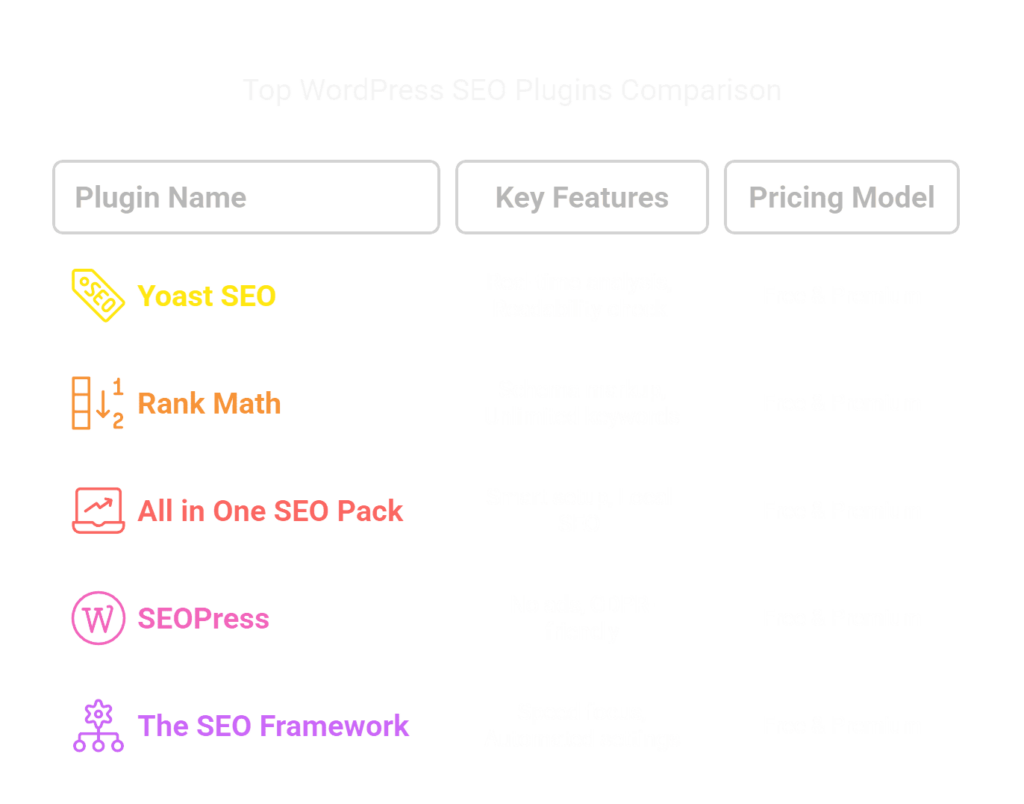
1. Yoast SEO — The Industry Veteran (Trusted & Reliable)
If WordPress SEO plugins had a Hall of Fame, Yoast SEO would be front and center.
Yoast SEO has been around since 2010 — older than some TikTok influencers! It’s the plugin many of us learned SEO basics with.
I often call it the wise SEO professor — always reminding you to add a focus keyword, check your readability score, and structure your content like a pro.
Key Features:
- Real-time SEO analysis while you write.
- Readability checker (great for non-techies).
- Auto XML sitemap generation.
- Meta titles & description control.
- Breadcrumb navigation for better UX.
Is Yoast SEO Free?
Yes — the free version is powerful enough for most small websites. But the premium version adds advanced features like internal linking suggestions, redirect management, and support for multiple focus keywords.
What is Better Than Yoast SEO?
That depends. If you want more customization, lightweight performance, or advanced schema markup — you might prefer Rank Math (coming up next!).
4. Rank Math — The Tech-Savvy Rising Star (Feature-Rich & User-Friendly)
Rank Math burst onto the scene like the new kid in class who somehow aces every subject effortlessly.
It’s often called the Swiss Army Knife of SEO plugins because it crams in so many features — and many of them are free!
This is the plugin I personally recommend to clients who want maximum control without paying premium prices.
Standout Features:
- Built-in schema markup (rich snippets made easy).
- Optimize for unlimited focus keywords (even in the free version!).
- Integration with Google Search Console right inside WordPress.
- Automated SEO audits & suggestions.
Why I Love Rank Math:
It feels like having an SEO assistant who never sleeps — constantly scanning your site for improvements.
3. All in One SEO Pack (AIOSEO) — The Friendly All-Rounder (Great for Beginners)
AIOSEO is like that easygoing friend who gets along with everyone.
It’s user-friendly, straightforward, and doesn’t overwhelm you with jargon or endless settings.
Perfect for:
- Bloggers.
- Small businesses.
- Website owners who want simplicity without sacrificing results.
Key Features:
- Smart SEO setup wizard (great for beginners).
- Local SEO module for brick-and-mortar businesses.
- Social media integration for optimized sharing.
- WooCommerce SEO support.
4. SEOPress — The Privacy-Focused Minimalist (Affordable & Customizable)
SEOPress is like the quiet genius — understated, but incredibly powerful under the hood.
If you care about privacy, white-labeling, or customizing every little SEO detail, SEOPress might be your new best friend.
Why SEOPress Stands Out:
- No ads in the dashboard.
- GDPR-friendly with no data collection.
- Affordable premium version packed with pro features.
5. The SEO Framework — The Lightweight Ninja (Fast & Automated)
Not every site needs bells and whistles.
Sometimes, speed and automation are the real superpowers — and The SEO Framework delivers exactly that.
This plugin quietly handles your SEO with minimal configuration required. Ideal for developers or minimalist site owners.
Notable Features:
- No ads or upsells.
- Focus on speed and performance.
- Automated SEO settings.
- Visual SEO color-coded indicators.
SEO Plugin Comparison for WordPress — Finding Your Perfect Match
Choosing an SEO plugin isn’t just about picking the “best” one — it’s about choosing the right one for your website.
I often tell clients:
“Picking an SEO plugin is like choosing a travel companion for a long road trip — you want someone who understands your pace, needs, and destination.”
Some plugins are feature-rich powerhouses — perfect for large, content-heavy websites. Others are clean, fast, and built for simplicity.
Let’s break it down.
Quick Comparison Table: SEO Plugin Comparison for WordPress
SEO Plugin | Best For | Free Version | Premium Price | Strengths | Weaknesses |
Yoast SEO | Beginners & Content Creators | Yes | $99/year | Readability tools, on-page SEO | Can feel heavy on some sites |
Rank Math | Advanced Users & Feature Seekers | Yes | $59/year | Schema, multi-keyword optimization | Steeper learning curve |
AIOSEO | Small Business Owners & Local SEO | Yes | $49.50/year | Easy setup, Local SEO focus | Fewer advanced features |
SEOPress | Privacy-Conscious & Customization Lovers | Yes | $49/year | Affordable, No ads, White-labeling | Less beginner-friendly guides |
SEO Framework | Minimalists & Performance-Focused Sites | Yes | $84/year | Lightweight, Fast, Automated | Limited feature set by design |
So… Which WordPress SEO Plugin is Best?
Here’s where it gets personal.
Ask Yourself:
- Are you a beginner who wants easy-to-follow advice? → Yoast SEO is your friendly guide.
- Need advanced control and automation? → Rank Math is your power tool.
- Running a local shop or small business? → AIOSEO understands your world.
- Want privacy and white-label options? → SEOPress respects your boundaries.
- Need lightweight, no-nonsense SEO? → The SEO Framework won’t slow you down.
Is There a Most Sold WordPress Plugin?
Historically, Yoast SEO has been one of the most downloaded and installed SEO plugins for WordPress — simply because it’s been around the longest and serves beginners so well.
But in recent years, Rank Math has shaken up the SEO world, attracting users with its generous free features.
Do WordPress SEO Plugins Work?
Absolutely — but remember:
- They’re tools, not magic spells.
- They work best when combined with great content, solid website structure, and good SEO practices.
- Plugins guide you — but you need to keep creating valuable content for your readers.
Free vs. Premium SEO Tools — What Should You Choose?
Let me tell you a little secret I’ve learned after years of building and optimizing WordPress sites:
Free SEO plugins are like a good cup of coffee — they’ll wake your website up and get you going.
But sometimes, if you want to go the extra mile — win new clients, compete in crowded niches, or dominate search results — you’ll need to invest in something a little stronger… like a premium espresso machine with all the bells and whistles.
That’s exactly how it works with WordPress SEO plugins.
Which SEO Tool is Free?
Thankfully, WordPress has a treasure chest of best free SEO plugins that offer powerful features without costing a dime.
Top Free SEO Plugins:
- Yoast SEO Free — Great for content creators focused on readability and basic optimization.
- Rank Math Free — One of the most generous free SEO plugins (multi-keyword optimization included).
- SEOPress Free — Clean, ad-free interface with essential SEO tools.
- SEO Framework Free — Lightweight and automated SEO support.
These tools are more than enough for personal blogs, portfolio sites, or small businesses just starting out.
ipiscing elit. Ut elit tellus, luctus nec ullamcorper mattis, pulvinar dapibus leo.
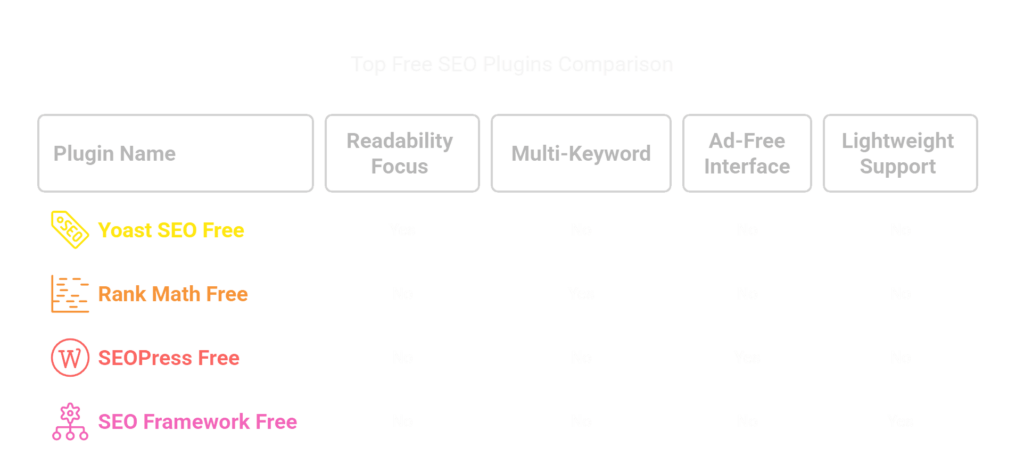
When Should You Upgrade to Premium SEO Tools?
Here’s where I tell my clients:
“If SEO is becoming mission-critical to your business growth — it’s time to invest in premium tools.”
Premium SEO plugins are like hiring a personal SEO consultant — they offer:
- Advanced schema & rich snippet support (great for product or review sites).
- Local SEO optimization (perfect for shops & services targeting specific areas).
- Redirection management (to fix broken links without hassle).
- Internal link suggestions (huge for content-heavy websites).
- Video SEO optimization (if you’re focusing on YouTube or video marketing).
Best Premium SEO Tools for WordPress:
Plugin | Why Upgrade? | Premium Price |
Yoast SEO Premium | Internal linking, redirect manager, multiple focus keywords | $99/year |
Rank Math Pro | Schema generator, advanced analytics, local SEO | $59/year |
AIOSEO Pro | Local SEO, WooCommerce SEO, SEO audit tool | $49.50/year |
SEOPress Pro | White-label options, advanced analytics, structured data | $49/year |
My Honest Advice as a Web Creation Writer:
If you’re a blogger, freelancer, or hobbyist?
Stick with free SEO tools — they’ll serve you well.
Running an e-commerce store, business website, or content-driven platform where SEO can directly impact your income?
Invest in premium — it’s worth every penny.
Bonus — Additional Must-Have SEO Tools for WordPress
SEO plugins are like your core toolkit — the hammer, screwdriver, and tape measure of your WordPress website.
But sometimes you need a few extra gadgets in your toolbox — things that make your work smarter, faster, and more precise.
Over the years, I’ve discovered some popular SEO tools for WordPress websites that every serious site owner should have bookmarked — free and premium alike.
These aren’t just optional extras — they’re the little secret weapons that help your SEO strategy go from good to exceptional.
1. Google Search Console — The Free SEO Dashboard from Google Itself
If your SEO plugin is the engine under your website’s hood, Google Search Console is the dashboard telling you exactly how that engine is performing on the road.
This free tool from Google helps you:
- Monitor site performance in search results.
- Spot indexing issues.
- Find keyword queries bringing users to your site.
- Submit your sitemap for faster crawling.
2. Ahrefs SEO WordPress Plugin — The Data-Driven Detective
Ahrefs is famous for its powerful SEO platform, but they also offer a lightweight WordPress plugin for content audits.
This tool checks:
- Broken links.
- Keyword rankings.
- On-page SEO health.
Great for content creators who want to keep their old posts fresh and ranking.
3. MonsterInsights — Analytics with an SEO Twist
I love MonsterInsights because it bridges the gap between SEO and analytics.
Knowing how people find and interact with your website helps you double down on what’s working.
With MonsterInsights, you can track:
- SEO performance.
- Traffic sources.
- Top-performing content.
4. Broken Link Checker — The Quiet Hero
Broken links are like potholes on a busy road — they frustrate visitors and annoy search engines.
This free tool scans your website for broken internal and external links so you can fix them before they hurt your rankings.
5. Keyword Planner Tools — The Map for Your Content Journey
Tools like:
- Google Keyword Planner (Free)
- Ubersuggest (Freemium)
- Keywords Everywhere (Browser Extension)
These tools help you find high-volume, low-competition keywords — the golden tickets for organic growth.
Final Thoughts — Your SEO Success Story Starts Here
Here’s what I’ve learned after years of building, optimizing, and sometimes breaking (yes, breaking!) WordPress websites:
SEO isn’t about tricking Google.
It’s about creating a website that deserves to be found.
And the right SEO plugins for WordPress? They’re not just tools — they’re your trusted allies on that journey.
Whether you choose the seasoned wisdom of Yoast SEO, the feature-rich genius of Rank Math, the simplicity of AIOSEO, the privacy-first approach of SEOPress, or the speed and stealth of The SEO Framework — you now have a clear map of what each one offers.
So… Which WordPress SEO plugin is best?
The best one is the plugin that fits your story:
- Your goals.
- Your audience.
- Your vision for the future.
“Ready to turn your website idea into reality — and make sure the world finds it?”
At Elkostart, we don’t just build beautiful websites — we build smart websites that get seen, get clicks, and get results.
Whether you need a blog that ranks, an online store that sells, or a business site that stands out — we’ll create it with strategy, SEO, and soul.
Let’s build your online success story — together.
👉 Start your project with Elkostart today — and let your website work as hard as you do.


